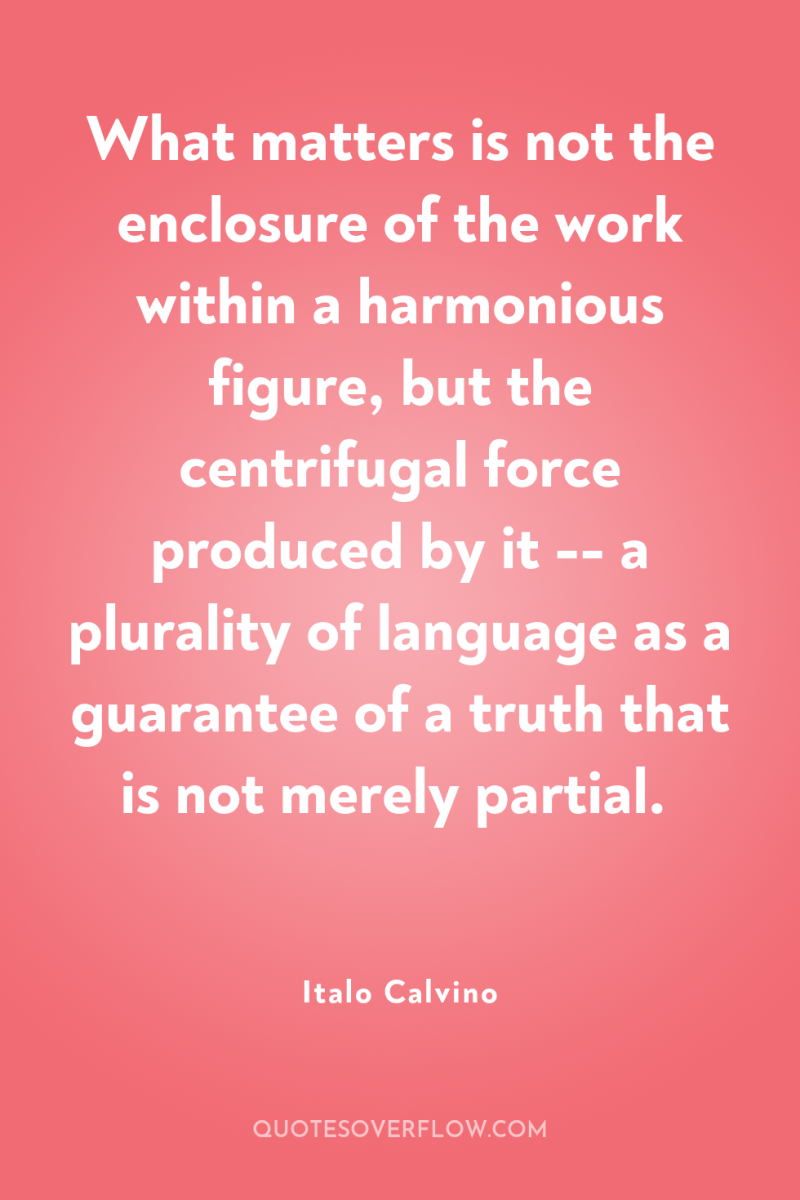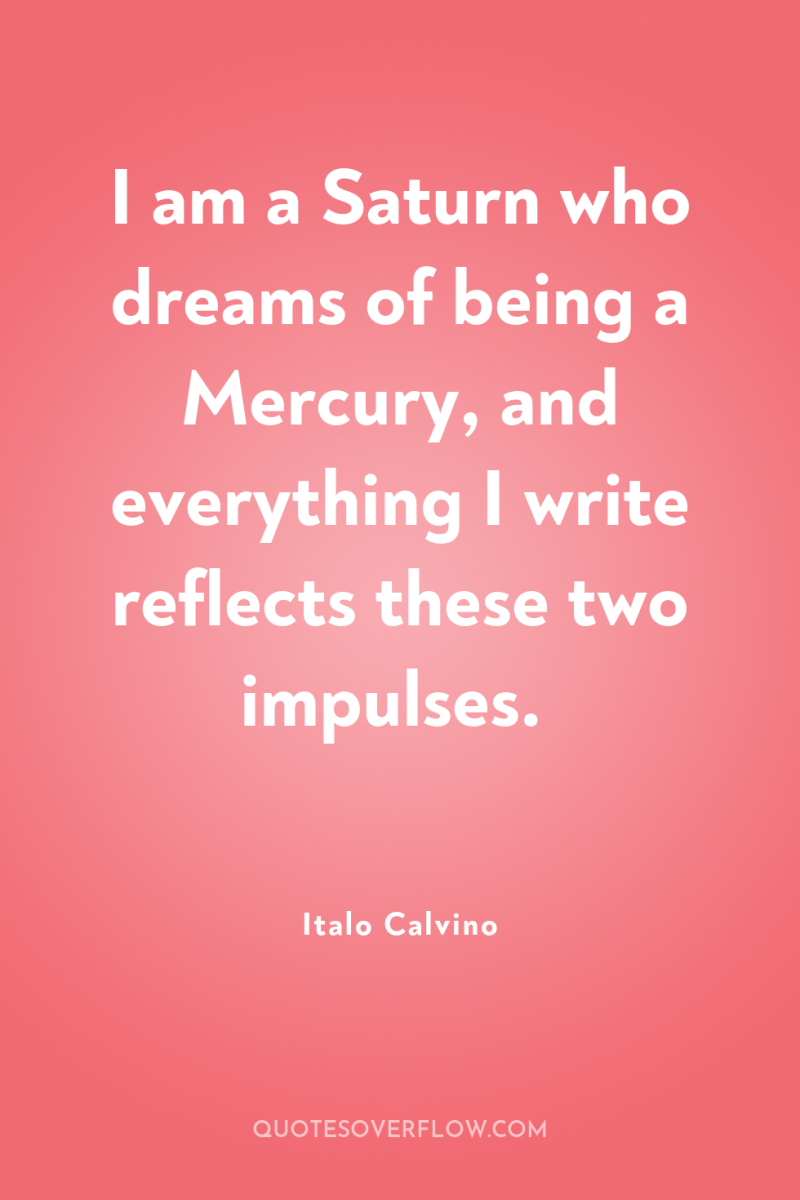
1
What matters is not the enclosure of the work within a harmonious figure, but the centrifugal force produced by it -- a plurality of language as a guarantee of a truth that is not merely partial.Italo Calvino

2
I am a Saturn who dreams of being a Mercury, and everything I write reflects these two impulses.Italo Calvino
3
In an age when other fantastically speedy, widespread media are triumphing, and running the risk of flattening all communication onto a single homogeneous surface, the function of literature is communication between things that are different simply because they are different, not blunting but even sharpening the differences between them, following the true bent of written language.Italo Calvino
4
I think that my first impulse arises from a hypersensitivity or allergy. It seems to me that language is always used in a random, approximate, careless manner, and this distresses me unbearably. Please don't think that my reaction is the result of intolerance towards my neighbor: the worst discomfort of all comes from hearing myself speak. That's why I try to talk as little as possible. If I prefer writing, it is because I can revise each sentence until I reach the point where - if not exactly satisfied with my words - I am able at least to eliminate those reasons for dissatisfaction that I can put a finger on. Literature - and I mean the literature that matches up to those requirements - is the promised land in which language becomes what it really ought to be.Italo Calvino
5
Overambitious projects may be objectionable in many fields, but not in literature. Literature remains alive only if we set ourselves immeasurable goals, far beyond all hope of achievement.Italo Calvino
6
It sometimes seems to me that a pestilence has struck the human race in its most distinctive faculty - that is, the use of words. It is a plague afflicting language, revealing itself as a loss of cognition and immediacy, an automatism that tends to level out all expression into the most generic, anonymous, and abstract formulas, to dilute meaning, to blunt the edge of expressiveness, extinguishing the sparks that shoots out from the collision of words and new circumstances.Italo Calvino
7
The real protagonist of the story, however, is the magic ring, because it is the movements of the ring that determine those of the characters and because it is the ring that establishes the relationships between them. Around the magic object there forms a kind of force field that is in fact the territory of the story itself. We might say that the magic object is an outward and visible sign that reveals the connection between people or between events. We might even say that in a narrative any object is always magic.Italo Calvino
8
The proper use of language, for me personally, is one that enables us to approach things (present or absent) with discretion, attention, and caution, with respect for what things (present or absent) communicate without words.Italo Calvino
9
The word connects the visible trace with the invisible thing, the absent thing, the thing that is desired or feared, like a frail emergency bridge flung over an abyss.Italo Calvino
10
For Leopardi, unhappy hedonist that he was, what is unknown is always more attractive than what is known; hope and imagination are the only consolations for the disappointments and sorrows of experience. Man therefore projects his desire into infinity and feels pleasure only when he is able to imagine that this pleasure has no end.Italo Calvino
11
Although science interests me just because of its efforts to escape from anthropomorphic knowledge, I am nonetheless convinced that our imagination cannot be anything but anthropomorphic.Italo Calvino
12
In fact the problem Leopardi is facing is speculative and metaphysical, a problem in the history of philosophy from Parmenides to Descartes and Kant: the relationship between the idea of infinity as absolute space and absolute time, and our empirical knowledge of space and time.Italo Calvino
13
I'm accustomed to thinking of literature as a search for knowledge; in order to move onto existential terrain I need to consider it in relation to anthropology, ethnology, and mythology.Italo Calvino